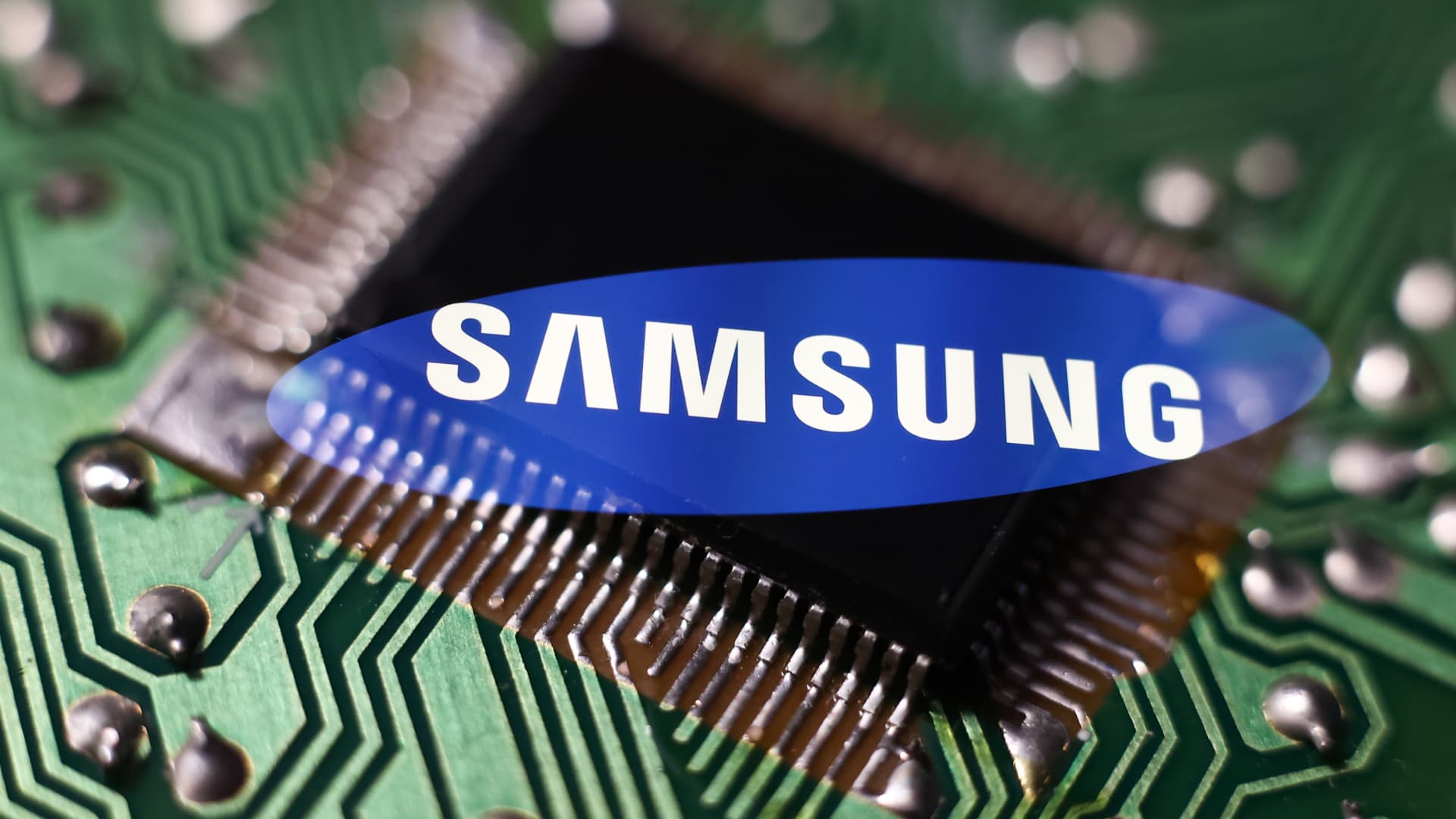Samsung, renowned for being the world’s largest producer of memory chips, has unveiled its ambitious plans to expand its chip manufacturing business. With a particular focus on cutting-edge semiconductors, Samsung aims to close the gap on industry leader TSMC.
Though Samsung is widely recognized for its smartphones, it possesses a vast semiconductor business that serves as its major revenue driver. The company manufactures memory chips extensively utilized in data centers and laptops.
In addition to its memory chip production, Samsung also operates a chip manufacturing division called a foundry, which caters to other chip designers such as Qualcomm.
In early 2021, Samsung announced its intentions to produce 2 nanometer chips by 2025. Now, the company has provided more detailed insights into its roadmap. It plans to commence mass production of the 2nm chips for mobile applications in 2025, expand to high-performance computing in 2026, and delve into automotive applications in 2027.
The nanometer measurement refers to the size of individual transistors on a chip. Smaller transistors enable a higher density of circuits on a semiconductor, leading to more powerful and efficient chips. Consequently, the reduction in nanometer size holds paramount importance.
For comparison, Apple currently utilizes a 5nm process for its latest iPhone processor. Samsung predicts that future smartphones will demand even more advanced chips, and it aims to be prepared for this development by 2025.
High-performance computing involves the production of chips specifically designed for data centers to train and implement artificial intelligence applications. Samsung seeks to capitalize on the growth of this technology, fueled in part by the popularity of OpenAI’s ChatGPT. Notably, Nvidia, a leading player in AI chips, relies on foundries like TSMC for its semiconductor manufacturing needs.
In terms of market share, Samsung’s foundry currently trails behind TSMC, the world’s largest contract manufacturer. Counterpoint Research reports that TSMC accounted for 59% of global semiconductor foundry revenue in Q1 this year, while Samsung stood at 13%.
To bridge this gap, Samsung is actively expanding its manufacturing capacity and establishing a roadmap for high-growth areas in the chip market.
The company has also reiterated that its planned 1.4nm process will commence production in 2027.
Furthermore, Samsung continues to enhance its chip manufacturing capabilities with the addition of new production lines in Pyeongtaek, South Korea, and Taylor, Texas, both of which have been previously announced.
Denial of responsibility! VigourTimes is an automatic aggregator of Global media. In each content, the hyperlink to the primary source is specified. All trademarks belong to their rightful owners, and all materials to their authors. For any complaint, please reach us at – [email protected]. We will take necessary action within 24 hours.


